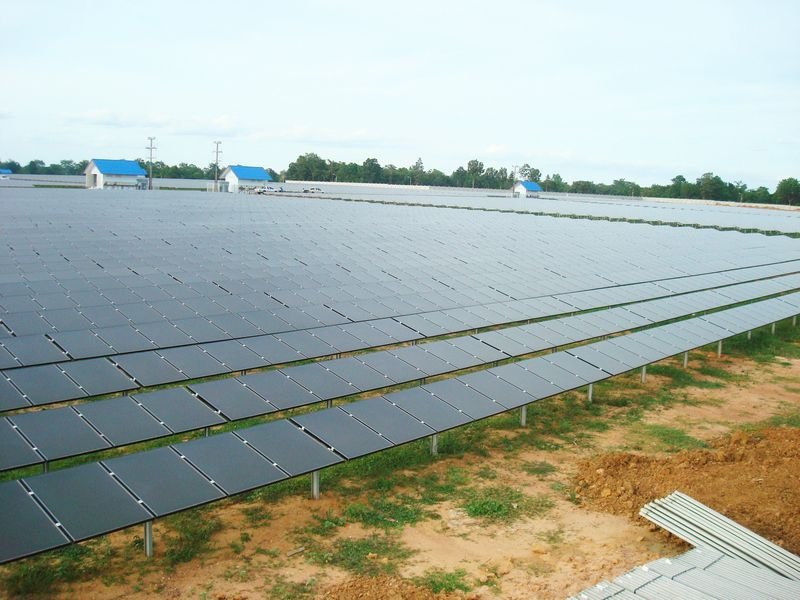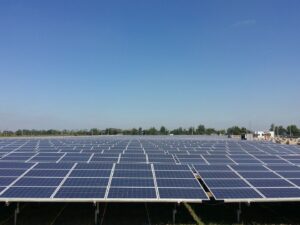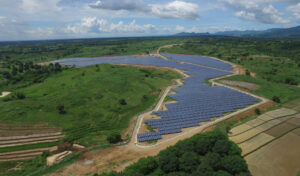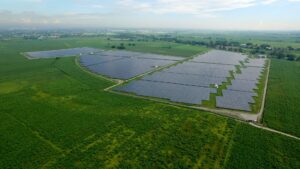In the Pak Thong Chai district in the province of Nakhon Ratchasima, some 250 kilometres northeast of Bangkok, a solar park has been built by Conergy and Ensys Co. Ltd for CH. Karnchang Public Company Limited.
For this project, Conergy provided the engineering, design and supply of the components for the 445,250 square meter park. In cooperation with local partner Ensys Co. Ltd, Conergy installed over 64,000 thin-film modules on 120 kilometres of Conergy SolarLinea mounting systems. Twenty- seven (27) Conergy IPG 300C inverters have been feeding 12,778 megawatt hours of clean energy into the Thai national grid since July 2012. The solar park is supplying enough power for around 4,000 households and preventing the release of some 7,000 tons of damaging CO2 emissions in the kingdom each year.
“All around the world, ongoing climate change is increasingly entailing natural disasters, as has happened recently in Thailand,” says Alexander Lenz, CEO of Conergy Asia & Middle East. “These floods represented a great challenge for us – a challenge, however, that we have mastered and that is not stopping us from building further solar parks here. On the contrary, there is hardly a more convincing argument than these floods for solar as a sustainable and clean form of energy. Moreover, thanks to the comprehensive worry-free insurance, the investors of the existing parks have been protected against such flooding damages as well as the resulting interruption of the energy production.”
The Thai government has already initiated the move towards sustainable energy and plans to have achieved a solar market volume totalling 3000 megawatts of installed capacity by 2020. Contrary to developments in many European solar markets, the Thai energy authority has announced that it wants to review the existing support for solar “positively”: In the future, small plants on private houses might possibly also benefit from the state-guaranteed feed-in tariffs besides the large solar plants.



